Disclosure: We may get commissions for purchases made through links in this post.
Oil stains are the most common stain that we see everywhere, be it in a driveway, patio, or park. It is why we researched the different ways how to remove oil stains from pavers to share with you.
To remove oil stains, you need to do the following:
- Absorb grease and excess oil with a towel
- Apply kitty litter to absorb the remaining oil or grease
- Scrub the stained area with dishwashing soap
- Jet and wash the area using a garden hose
We stated the steps above as the simplest for you to grasp immediately. But of course, we prepared the well-elaborated steps for you. So, we suggest you stay and keep reading. We have a long discussion to do to answer all your questions for you. So, we suggest you stay and keep reading.
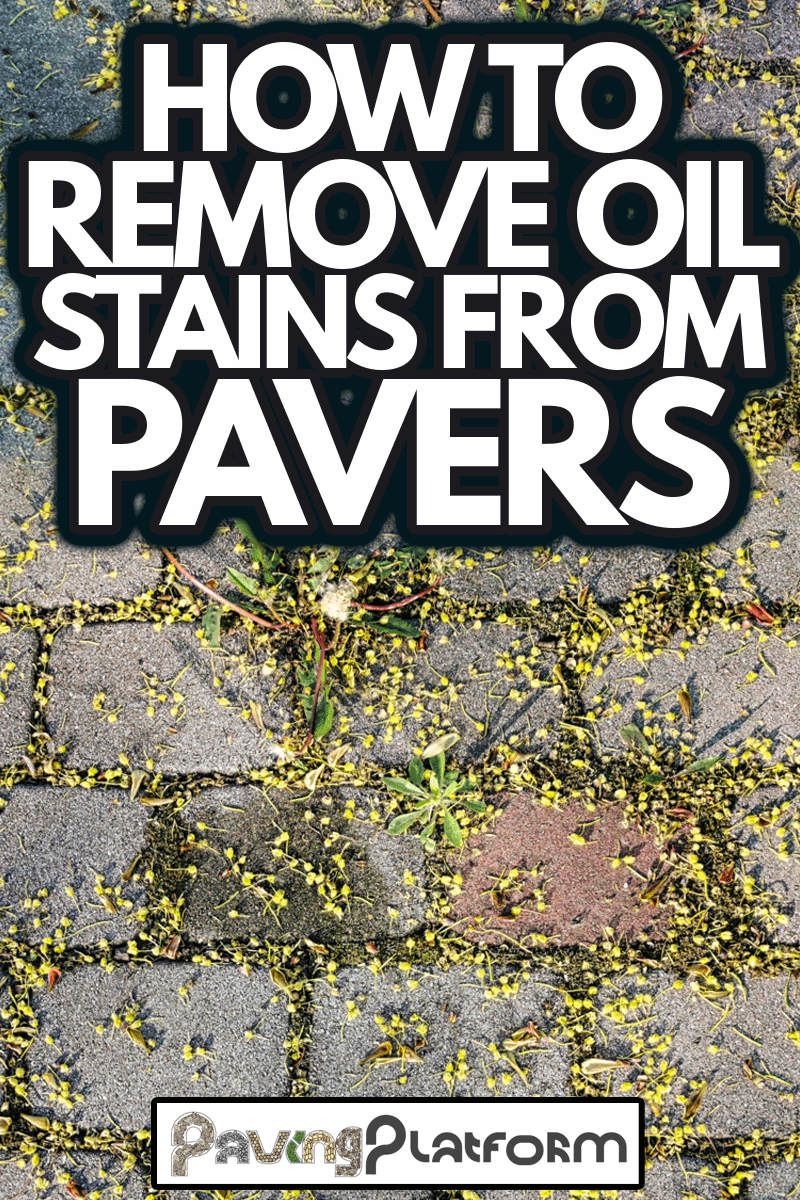
Removing The Oil Stains
Oil stains always happen. It may be from the grease of a truck that just finished repair, a leaking car, or maybe a cooking oil that dripped from your last night's barbecue. But you don't have to worry because we are here to help.
There are a lot of options to clean stained pavers. You can use some homemade solutions and finish the cleaning alone if you are patient enough. Or you can also opt to call a professional if you don't want to exhaust yourself. Always make an effort to bring your pavers back to their clean state.
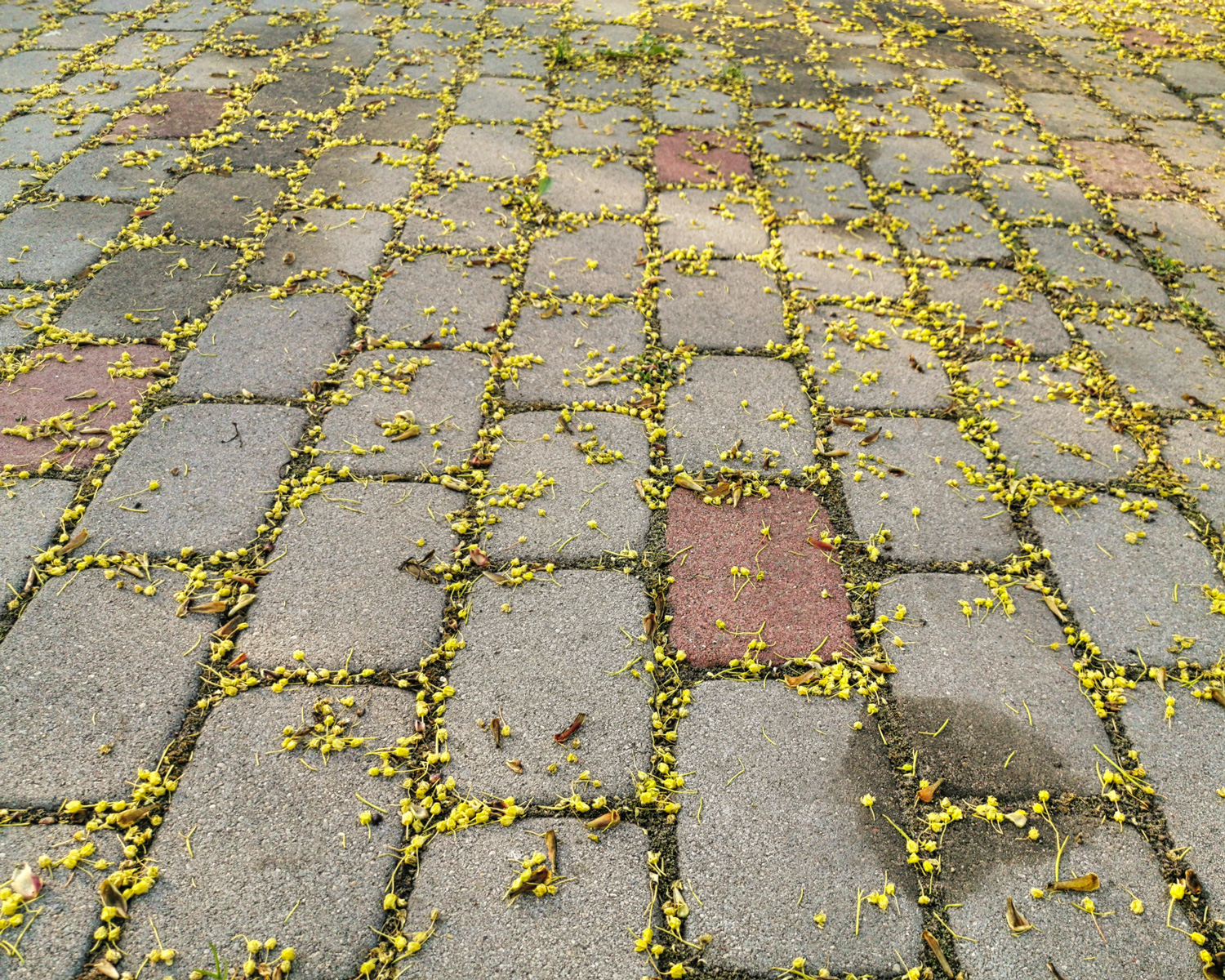
1. Soak up or Absorb grease and excess oil with a towel
All you need to do the first step is prepare paper towels or rags. Use them to absorb oil or grease as much as you can.
2. Apply Cat litter to absorb the remaining oil or grease
If you can still see some noticeable oil stains or grease on your pavers, it will be best to use cat litter. Just lay the clay-based cat litter over the pavers with the oil stains. And then push it gently and broadly. Doing so will make it absorb more of the oil and grease build-ups.
Leave the cat litter be for about 10-15 minutes to continue soaking up the stains thoroughly. Lastly, remove the cat litter by sweeping it lightly and then dispose of it. Just a little reminder, don't ever try to use wire brushes, for this will scratch your pavers.
3. Scrub the stained area with dishwashing soap
As we mentioned earlier, you need to be patient enough if you're planning to do the oil removal alone. This process requires exhaustive effort. After removing the cat litter, scour the area with stains using a dishwashing soap with water and a scrub brush. No wire bristles brushes!
You may go for natural cleaning solutions if you prefer to. However, know that a dishwashing soap is best in removing oils and grease. Use one if you want an up to par result.
Check this Dawn Ultra Dishwashing Liquid on Amazon.
An example of a natural cleaning option is baking soda. You may use it just in case you don't have dishwashing soap. You can also use it to get rid of new or fresh stains. Additionally, you can make a paste by mixing it with water or using it alone. Whichever you choose will still give the same result. Apply it to the stain and then brush it off with the scrub brush.
4. Jet and wash the area
Last but not least, rinse the whole area to remove all the residues. Try using a hose with a nozzle to jet the entire stained area. Using a jet sprayer will give a bit of a high-pressure water flow that will help you rinse it thoroughly.
But we highly suggest that if you have a high-pressure washer, it is best to use it. It will most likely do the job better than an ordinary garden hose. However, if you ever try to use this option, we want to remind you to be extra careful. Using a pressure washer may damage paving stones, concrete, or bricks.
More Stain Removal Recommended Alternatives
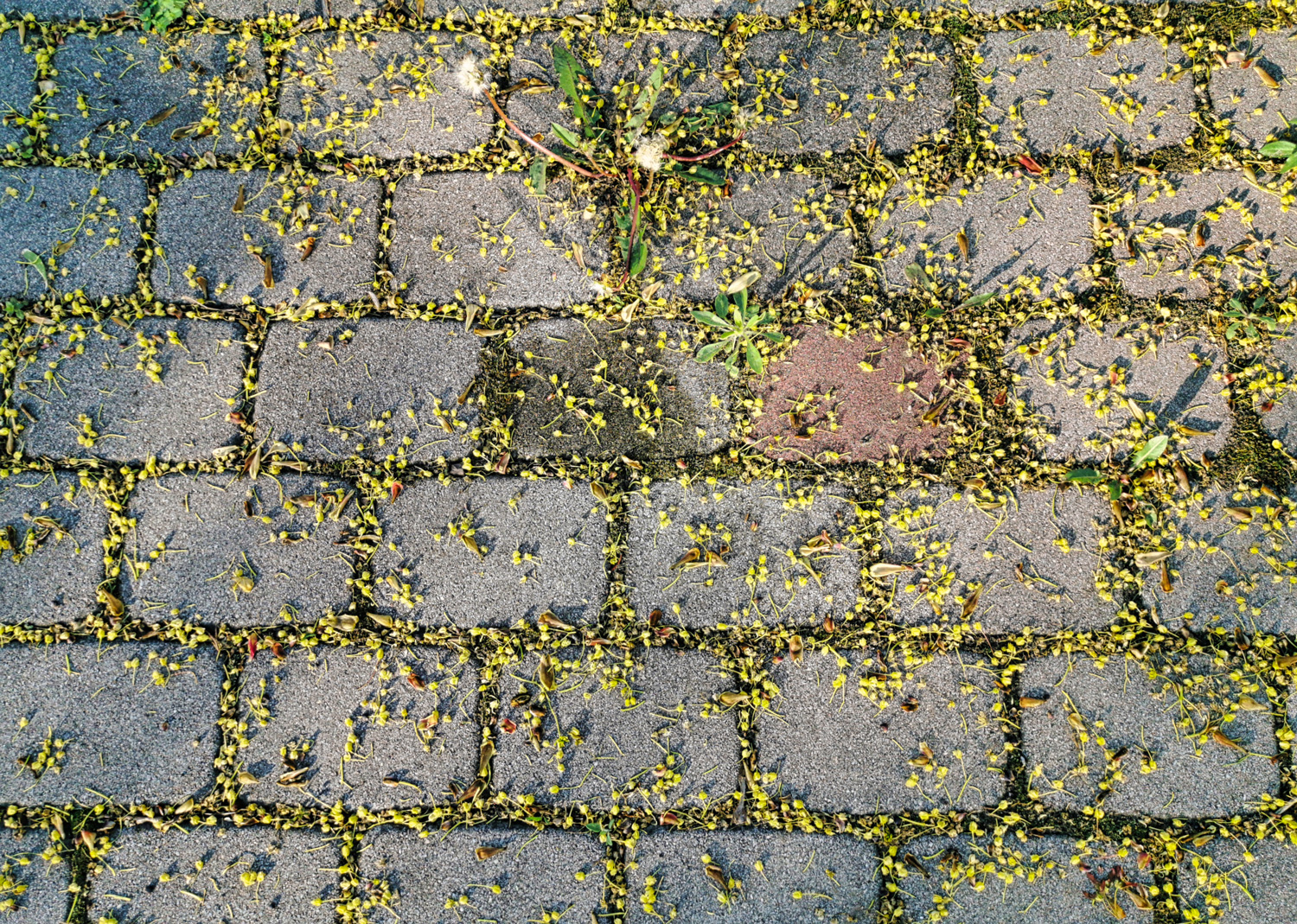
How's the result? Are the stains completely gone? Are you content with your cleaning? Try to have a glimpse of the area. If you see that there are still stains that you can't remove because of their stubbornness, we still have other alternatives prepared for you.
You may have already heard of things like a degreaser and oven cleaner. These two are the alternatives we confirmed for you.
Degreaser
To be specific, the degreaser we need here is solvent-based. Besides, it is specially made to remove automotive oil and grease. All you need to do is carefully spray the area with a stain, brush it carefully and gently, and allow the degreaser to sit for 10 to 15 minutes. Thoroughly rinse it after because it contains harmful chemical elements that may cause safety and health risks.
You can buy the degreaser at the hardware store, and there are some retailers online. If you choose to use this alternative, read and follow its instructions to avoid accidents and achieve a great result.
Check this Industrial Cleaner and Degreaser on Amazon.
Oven Cleaner
We bet you already have this in your home. It is pretty easy to use in removing oil from the pavers. You will need to spray the area generously, leave it be for 15 to 20 minutes, and then rinse it rigorously after. However, there is one thing to keep in mind. And that is to be careful as much as possible since it contains chemicals that you should not breathe.
Out of oven cleaner at home? Check this Oven and Grill Cleaner on Amazon.
Have It Cleaned By A Professional
In the event that you can't manage to clean the stained area carefully, you can opt to call a professional. As always, choose and hire a reputable professional to make your money worth it by receiving satisfactory results.
Additionally, let us assume you paid the pros to remove the annoying stains, so you might want to consider sealing your pavers now. If you don't want those horrible stains to be back or at least limit them, then sealing your pavers is necessary.
FAQs About Oil Stains On Pavers
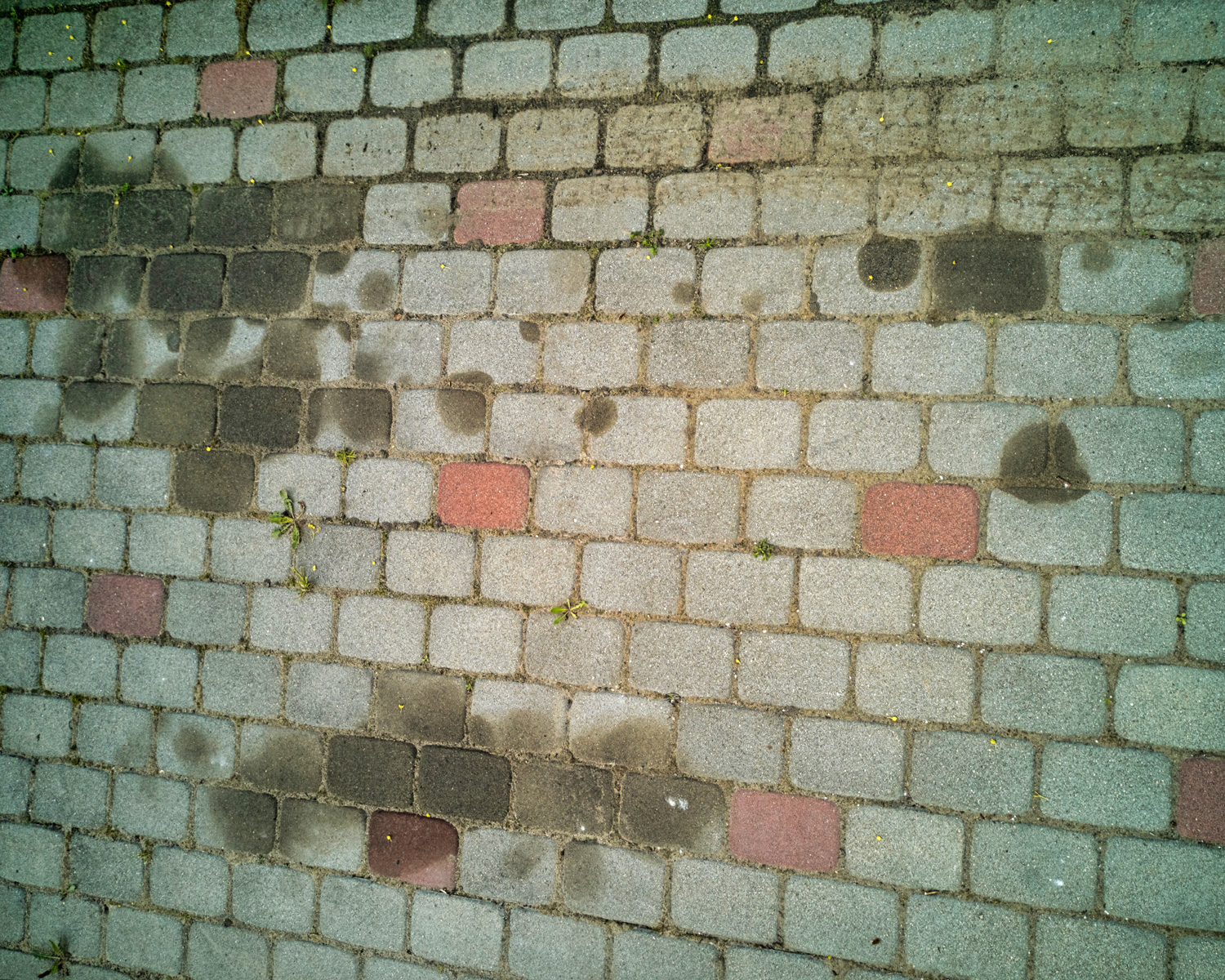
Of course, we wouldn't want to forget that you might still have some additional questions running through your head. So, we provided answers for you.
Why Are Pavers Susceptible To Stains
The only factor that makes pavers prone to stains is they are porous. On the contrary, they require the littlest of maintenance. And that is what makes pavers noteworthy.
Can I Use Bleach To Remove Stains On Pavers
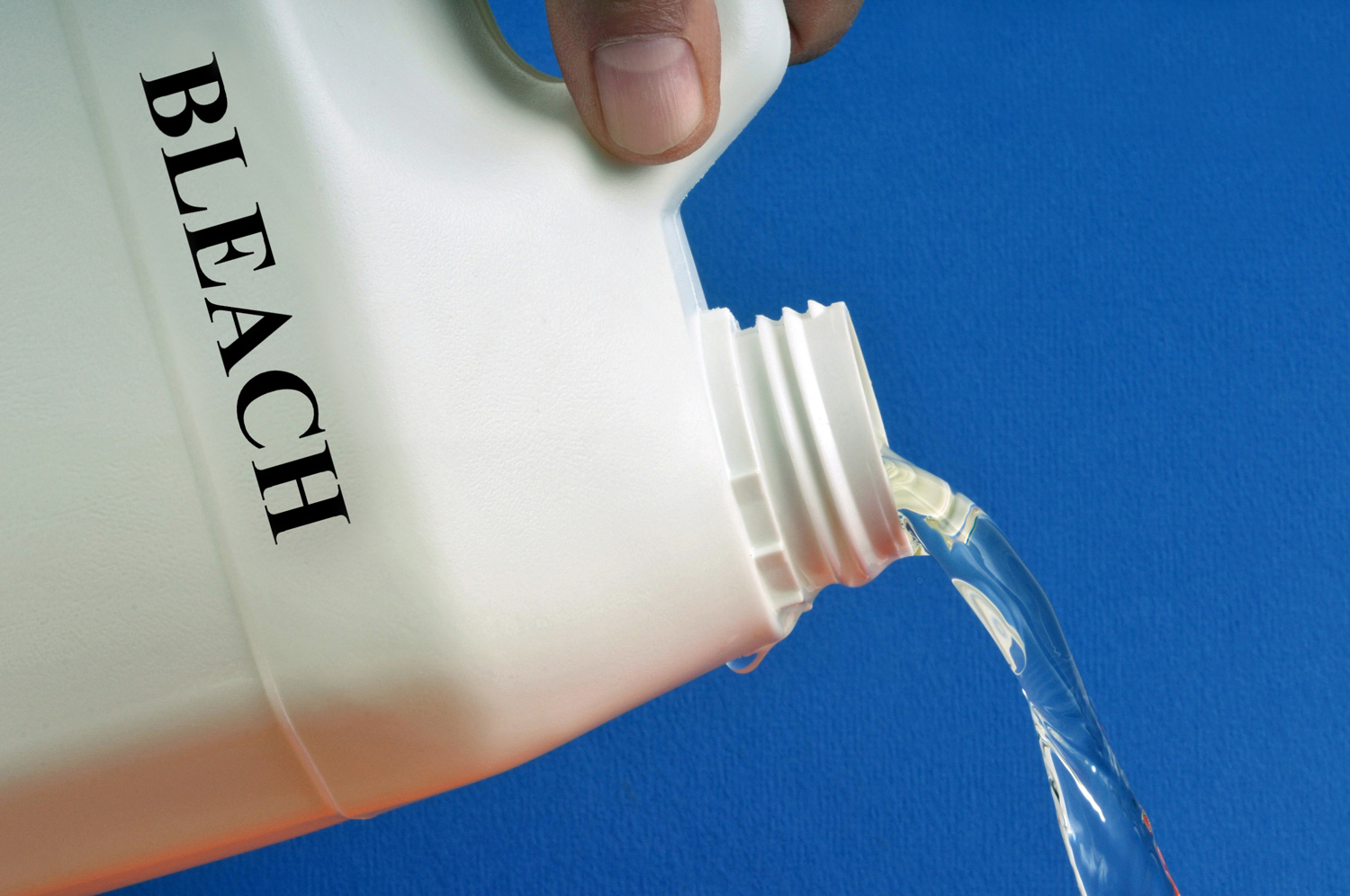
Bleach is a powerful solution and is very effective in removing grimes and specks of dirt. Also, you can use it in removing oil stains from your pavers. In contrast, you need to be careful in using it. If your bleach mixture is too potent, it can lead to damaging your pavers.
Another engaging factor that bleach offers is it can kill algae build-ups on your pavers and fends off mold growth.
Can Coke Remove The Oil Stains
We bet everyone knows that coke isn't only made for drinking but also cleaning. Amazing, right?
Just like degreasers, coke has a phosphoric acid ingredient in it that allows removing oil stains, as well. Who wouldn't want to remove the oil stains and get refreshed at once?
Can Vinegar Help In Removing Oil Stains
We already mentioned the most recommended stain removers earlier, although not everyone has those products and can go out to buy them.
Vinegar can be a substitute for the oil cleaning process. We can use it as a natural degreaser. All thanks to its acidic properties. And if you are wondering how it works, the vinegar's acidic properties break down the oil allowing us to clean the area effortlessly.
Is Muriatic Acid Safe To Use In Removing Oil Stains
You can use muriatic acid to clean red pavers, but it is not a good idea at all. It can cause serious harm to your skin, eyes, lungs, and more. You don't want to risk your health for this option.
If ever you choose to do this option, please follow the guidelines below:
- Personal protective equipment. The most urgent step in using muriatic acid is to protect yourself from future harm. Use gloves, goggles, a chemical-resistant suit, boots, and a face shield. There is also a specific type of respirator that you can use for this.
- Create solution- Add one part of acid into three parts of water.
Reminder: Only add the acid into the water, not water into acid since it might create an explosion. - Apply the solution to the stain by spraying.
- Rinse the solution thoroughly. Wash with water generously.
Recap
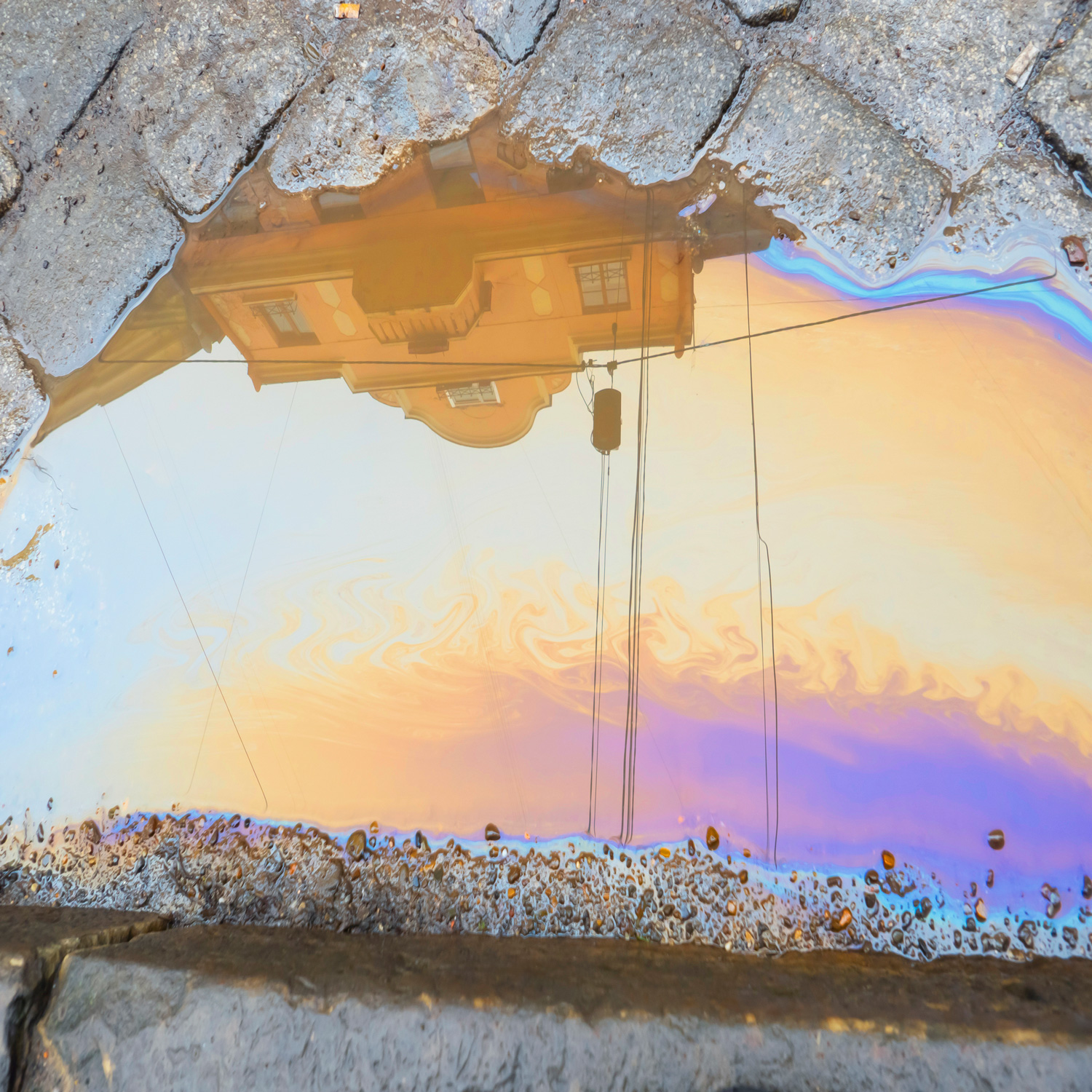
A problematic oil stain is not much trouble. But always remember, it is easier to deal with it when you act to solve it immediately. You can find solutions everywhere; you will have to be resourceful.
Liked our post? Watch out for these future articles for more accurate information.



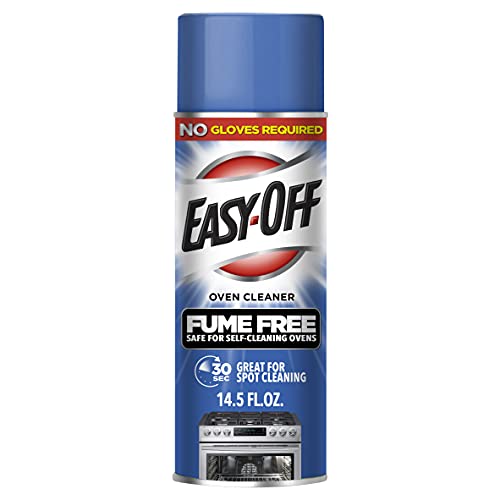
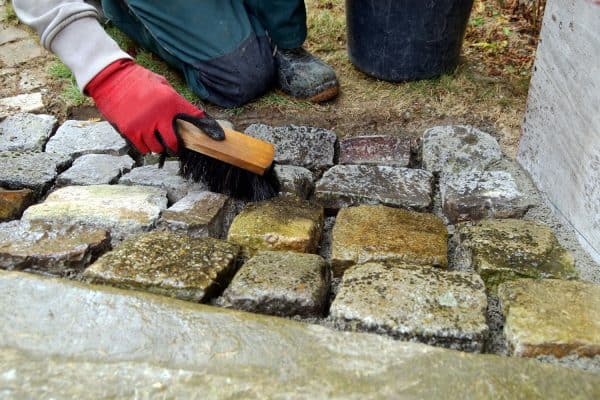
![Blue stone pavers on the garden patio, How To Clean Bluestone Pavers [Care & Maintenance Tips]](https://pavingplatform.com/wp-content/uploads/2022/03/Blue-stone-pavers-on-the-garden-patio-600x400.jpg)
![washing services - block paving cleaning with high pressure washer - Can You Pressure Wash Travertine Pavers? [Best Cleaning Methods]](https://pavingplatform.com/wp-content/uploads/2022/03/washing-services-block-paving-cleaning-with-high-pressure-washer-600x400.jpg)